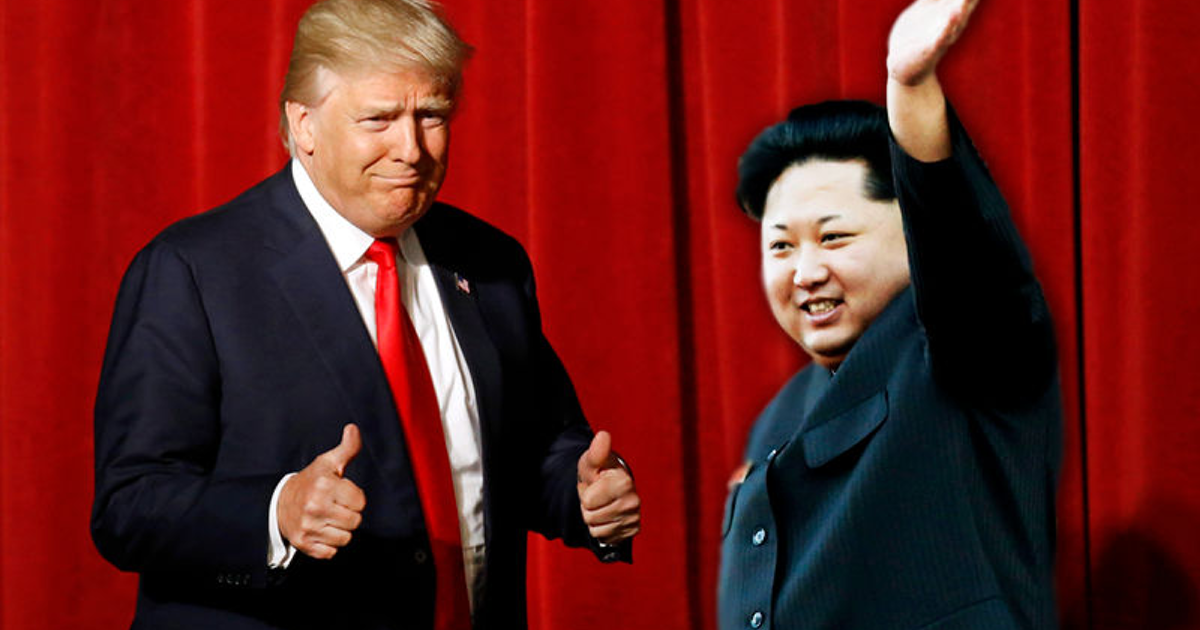|
By Justin Raimondo
The launching of yet another ballistic missile test by North Korea dramatizes the conundrum we face in dealing with Kim Jong-un. The trajectory of the missile – it traveled around 430 miles and landed some 60 miles from Russia, in the Sea of Japan – limns the trajectory of North Korea’s course in its confrontation with what Pyongyang views multiple threats to its sovereignty. Previous missile tests landed off the Japanese coast: this one splashed down close to Russia. It’s no coincidence that Vladimir Putin was at that moment in China, speaking at the “One Belt, One Road” conference, the Chinese version of the Davos conclave. The test also underscores a major misconception – held by many in the US, including the Trump administration – that China is North Korea’s ally, and can effectively rein in Kim Jong-un. This launch is a rebuke to both Moscow and Beijing, one that can be easily understood given some grounding in the history of Pyongyang’s relations with those two powers. While it is true that the Chinese supported Kim Il-sung, Kim Jong-un’s grandfather, during the Korean war, subsequent relations with the fiercely independent North Koreans were contentious, to say the least. Starting in 1952, Kim Il-Sung inaugurated a series of purges aimed at the pro-Chinese faction of the ruling Korean Workers Party: this culminated in 1956, when leaders of both the pro-Chinese and pro-Russians factions were expelled. The purges left a trail of executions, while several of the expellees fled to China. During the cold war era, Kim IL-sung deftly maneuvered between Beijing and Moscow, playing off the growing competition between the two communist powers, and significantly siding with the Russians when the Sino-Soviet split went public. They heartily disliked Gorbachev, and when he visited South Korea, snubbing the North, and threatened an embargo if they didn’t submit to inspection of their nuclear facilities, relations were practically severed. Moscow cut off military aid to Pyongyang in 1989. Post-Soviet Russia has supported Western efforts to sanction North Korea for its nuclear brinkmanship, albeit stopping short of endorsing military action. Chinese support for Pyongyang during the Korean war was not unconditional: Mao himself was said to have disdained Kim Il-sung as a “foolish ruler” who should be deposed. Kim Il-sung, for his part, was openly hostile to China’s “Cultural Revolution,” denouncing it as “unbelievable idiocy,” while the radicals around Madame Mao’s Red Guards and the Gang of Four mocked the North Korean despot as a “fat revisionist.” Relations improved after Mao’s death and the ouster of the Gang, but the idea that Beijing, acting as a “big brother,” can effectively rein in Pyongyang betrays ignorance of the history between the two nations. Today, Pyongyang is as hostile to the Chinese and the Russians as it is to the United States. All are seen as conspirators in the plot to subvert North Korean sovereignty, with Moscow and Beijing portrayed as collaborators with what the North Koreans see as the main danger to their security: the United States. The road to peace on the Korean peninsula won’t be paved by China, or any other interlocutor. What is required are direct negotiations between Washington and Pyongyang. Critics of this view point to the failure of past efforts – the six-party talks involving China, Russia, Japan, South Korea, North Korea, and the US – as evidence that this path is futile. Yet none other than President Donald Trump has suggested a new way of approaching the problem: a meeting with Kim Jong-un, which he says he would be “honored” to hold: “If it would be appropriate for me to meet with him, I would absolutely, I would be honored to do it, If it’s under the, again, under the right circumstances. But I would do that. Most political people would never say that, but I’m telling you under the right circumstances I would meet with him. We have breaking news.” While House press secretary Sean Spicer downplayed Trump’s proposal, and numerous “experts” said such a meeting is unlikely, not to mention unwise, Trump the deal-maker has stumbled on what could be the solution to a longstanding problem. For what the North Koreans yearn for, aside from simple security, is recognition, and what better way to recognize both North Korea’s sovereignty and status than by meeting with Kim Jong-un? Read the rest at Antiwar.com Comments are closed.
|
Archives
July 2024
|


 RSS Feed
RSS Feed



